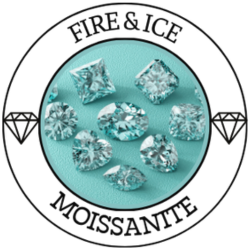The Origins of Moissanite
Moissanite is a unique and stunning gemstone that has been gaining popularity in recent years. But where does this beautiful stone come from?
Discovery in a Meteorite
Moissanite was first discovered by French chemist Henri Moissan in 1893 in a meteor crater in Arizona. Initially, Moissan mistakenly identified the crystals as diamonds, but later realized they were composed of silicon carbide.
Natural vs. Lab-Created
While moissanite occurs naturally in rare quantities, most moissanite available in the market today is lab-created. The process involves growing silicon carbide crystals in a controlled environment to produce stunning gemstones.
Characteristics of Moissanite
- Known for its brilliance and fire, moissanite exhibits even more sparkle than diamonds.
- Moissanite is almost as hard as diamonds, making it a durable and long-lasting alternative for jewelry.
- Its ethically sourced origins and affordable price point make moissanite an attractive option for environmentally conscious consumers.
Conclusion
Whether found in nature or created in a lab, moissanite continues to capture the hearts of jewelry enthusiasts worldwide with its beauty, durability, and ethical appeal.



